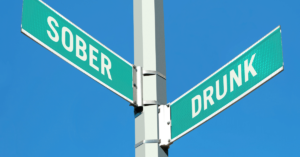A common question among those considering addiction treatment is whether drug and alcohol rehab really works. The oversimplified answer is yes, but it depends greatly on several factors. Chief among them are your goals, commitment level, and how drugs or alcohol are currently impacting your life.
Addiction treatment is an investment in yourself. Any investment you make needs to be assured a return. Research shows rehab frequently correlates with desirable outcomes. Substance use disorder can certainly be treated effectively. However, to understand if it’ll work for you, you have to know what you hope to gain from it. Keep reading to figure out what aspects of addiction treatment actually address your specific needs.
The primary objective of ideal addiction treatment is to get patients back to peak productivity. That goes for functioning the home, the workplace or anywhere in the community. The National Institute on Drug Abuse (NIDA) reports data showing patients treated for prolonged periods do conquer substance abuse. Research also correlates that with other positive outcomes. Those include a decrease in criminal activity and improvement in occupational, social and psychological functioning. All that said, NIDA adds that it all depends. Two key factors are the extent of patients’ circumstantial problems and how well treatment addresses the issues of the individual. These factors make all the difference.
Origins of Drug and Alcohol Rehab
Dr. Bachaar Arnaout is a psychiatry professor at the Yale School of Medicine. He contributed a comprehensive analysis of rehab to WBUR, NPR’s local station in Boston. It assessed whether or not the conventional model of drug and alcohol rehab actually works. He pointed out that the conventional model dates back to the 1950s, starting with Alcoholics Anonymous.
The model in question sends people away for several weeks of therapy in a controlled environment. It then follows up, if possible, with outpatient therapy too. In the broadest possible sense, Landmark Recovery provides its services within this same framework. According to Arnaout, well-controlled trials have produced lackluster results for demonstrating that this framework is measurably successful.
The model’s been in use for about 70 years. Throughout this time, decades’ worth of data has been collected. The rub is that inpatient treatment’s superiority to outpatient treatment hasn’t been conclusively demonstrated. It’s not superior enough, in other words, to bank on it from Arnaout’s perspective. He bases this on the inconsistent and diminutive effects of treatment setting. Plus, those effects diminish over time, he said. Part of the problem, Arnaout contends, is that the contemporary model was designed to treat alcoholism specifically. This, he argues, may not translate well to the unique addiction treatment needs of other substances.
Expert Opinions on Traditional Drug and Alcohol Rehab
 “The intensive treatment model is more applicable to acute health problems, such as stroke, rather than chronic illnesses, such as diabetes,” Arnaout said. “Addiction is a chronic, relapsing condition that is all too often treated as if it were an acute one that can abate with a bout of intensive treatment.”
“The intensive treatment model is more applicable to acute health problems, such as stroke, rather than chronic illnesses, such as diabetes,” Arnaout said. “Addiction is a chronic, relapsing condition that is all too often treated as if it were an acute one that can abate with a bout of intensive treatment.”
In other words, addiction is an incurable, constant problem with on-again, off-again recurrences like other chronic diseases, but it usually gets treated like something that can be cured or removed. Arnaout added that opioid addiction can be successfully treated via medication with only minimal need for therapy sessions. Bankole Johnson, a neuroscience professor at the University of Virginia School of Medicine weighed in on the same subject for Scientific American. As the editor of the latest edition of Addiction Medicine, he claims traditional rehab treats patients the same whether their addiction is to alcohol, opioids or cocaine. However, he adds that there’s no good pharmacological approach to cocaine addiction.
“I don’t believe that traditional rehabilitation using self-help methods is effective. In fact, the data suggest that they’re not much better than spontaneous rates of recovery,” Johnson said.
This hearkens back to what NIDA reported about the most important aspects of rehab: patients’ circumstances and how well treatment addresses their needs. Landmark Recovery tailors its treatment model to the individual. Staff take the time to figure out what the individual’s habits and needs are before beginning therapy. After prioritizing any necessary detox, Landmark staff make sure a custom regiment is mapped out for the patient based on their substance(s) of choice and real-life challenges.
How Landmark Differs from Traditional Rehab
Landmark Recovery’s addiction treatment model is quite non-traditional in a variety of ways. For starters, inpatient and outpatient treatment are both incorporated into its programs. The value of offering both is that different people’s needs can be met by Landmark’s curriculum. While inpatient treatment may seem unnecessary to some experts, they say this under the rationale of pharmacological treatment still being offered. In other words, they expect you to check yourself into a hospital or get in front of another primary care provider.
The reason for this is that treatment for many substance use disorders, including alcohol, requires a detox process. Doing that safely requires professionals to take a medical approach to mitigating your pain or discomfort during withdrawal. It’s important that withdrawal symptoms are safely monitored and managed. Landmark Recovery offers this because quitting cold turkey is dangerous.
Now, in the case of most addiction treatment centers, affordability isn’t the main objective, so one might still opt for a different medical center for care. However, Landmark Recovery’s been designated a major disruptor in the addiction treatment space specifically because of its unique services and programs. In fact, as discussed on The Recovery Executive Podcast, Landmark Recovery was the first of today’s large, addiction treatment companies to offer patients Medicaid coverage for treatment costs across several states.
Invest in Control of Your Life
Landmark makes drug and alcohol rehab unprecedentedly affordable. Landmark’s medically trained staff controls patients’ detox to make them more comfortable. Finally, those who graduate Landmark’s program also get into an alumni program at no additional cost. It’s a backend service that provides graduates with a remarkable network, which helps keep you away from your vices and facilitates reentry into the real world. Landmark’s alumni services program is the best possible support group, which is exactly what research indicates makes the biggest difference for those battling substance use disorder.
If you or someone you know needs addiction treatment, data shows it’s best not to rely on traditional drug and alcohol rehab centers. Visit Landmark Recovery or call 888.448.0302.

Choose Recovery Over Addiction
We're here 24/7 to help you get the care you need to live life on your terms, without drugs or alcohol. Talk to our recovery specialists today and learn about our integrated treatment programs.




